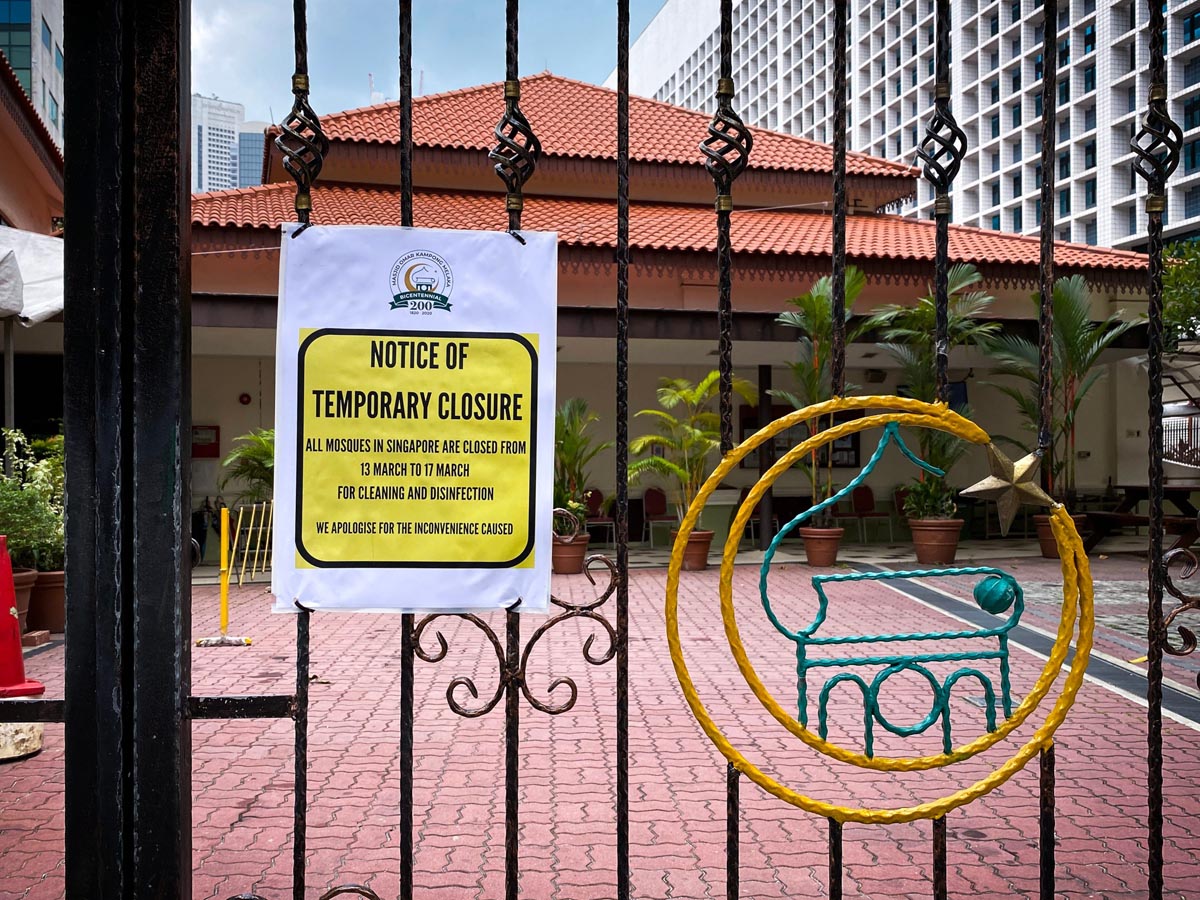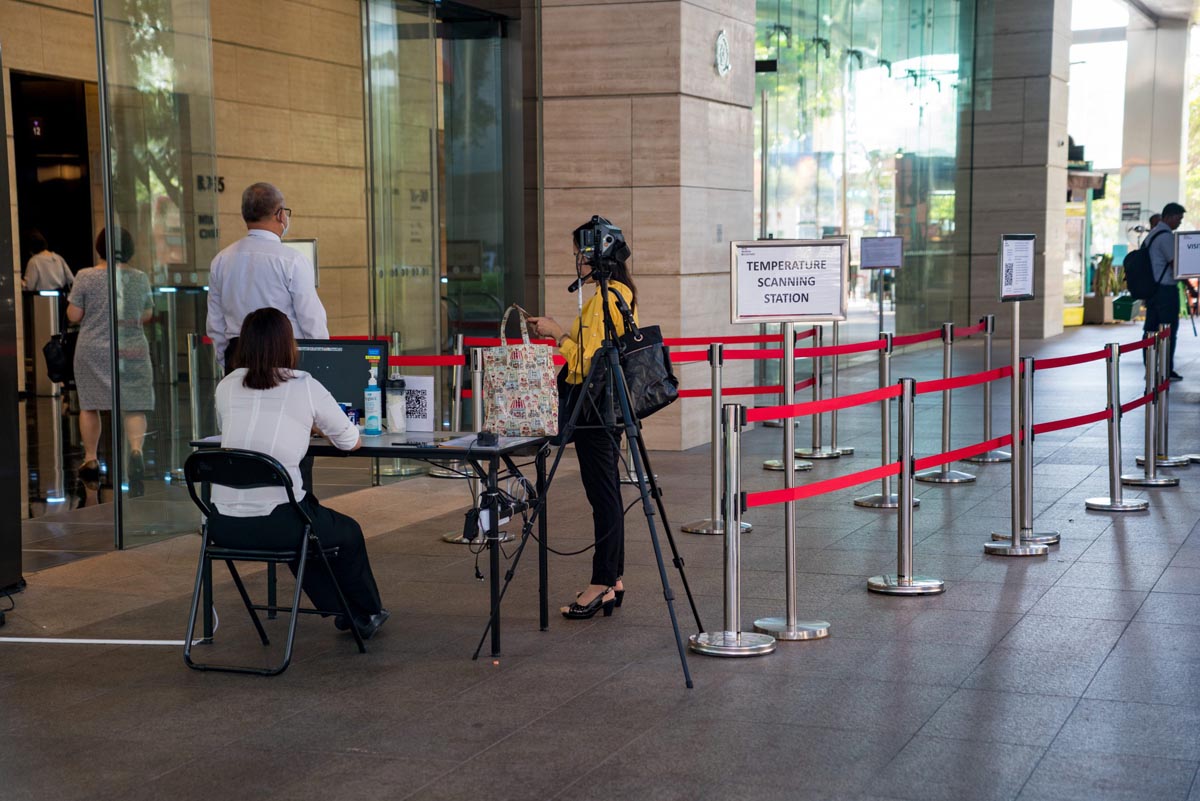Handling COVID-19 in Singapore: Government Mitigation and Regulation on Spatial Use




The original article is written by Anisa Pinatih and Candice Lim, published in Construction+ Online
In handling the COVID-19 outbreak, Singapore has come up tops in its whole-government response (Statnews) in acting quickly; rigorous detection and strict quarantines, as well as effective communication (Time). How exactly do the measures play out in terms of space and building use? We take a look at some of the key governmental measures to curb the spread of COVID-19 that have impacted the use of common/public and commercial/private spaces.
BY RESTRICTING MOVEMENT TO PRIVATE SPACES & ALLOCATING ISOLATION FACILITIES
To prevent the spread of the virus from confirmed cases, the Ministry of Health (MOH) has issued an advisory for persons who have received stay-home notices with detailed guidelines on how to use communal space. They must remain in their residences at all times during the 14-day period, and not leave. For food and essentials, they may opt for home delivery services or enlist the assistance of others. They must avoid interaction, even with people they share the residential space with; and they must not use common facilities in their estates/buildings, including the pool, gym, or playground.
For those who cannot self-isolate and are in need of medical treatment, MOH has also prepared to cope with a possible surge by optimising healthcare facilities. They have set up a Community Isolation Facility at D’Resort NTUC (at Pasir Ris) with a maximum capacity of about 500 persons, modelled after the existing government quarantine facilities, and is managed with a higher baseline level of infection control by staff. This is made operational from 24 March 2020.
To follow the advice by researchers (American Thoracic Society) and Centers for Disease Control and Prevention, which states that patients may carry the virus even after recovery, those who have clinically recovered and are to be discharged from medical care, but still test positive for COVID-19 will be cared for in the Community Isolation Facility, funded by the government (Ministry of Health).

©Shutterstock
BY REGULATING THE USE OF COMMERCIAL & PUBLIC SPACES
Mass gatherings must be deferred or cancelled, regardless of size, including any annual general meetings; and Singaporeans are advised against holding and participating in social events and gatherings involving more than 10 persons at one time (Building and Construction Authority).
For facilities such as gyms, studios and indoor sport halls, spaces should be kept well-ventilated and shared equipment must be removed (Sport SG). Park connectors such as Ulu Pandan Park Connector is also temporarily closed to minimise social contact (National Park).
Entertainment venues such as night clubs, discos, cinemas, theatres and karaoke outlets have been closed since 26 March 2020. Retail malls, museums, food and beverage venues, where contact is less intense, can still be opened, with conditions that they reduce operating capacity and maintain the number of people of no more than one person per 16 square metres of usable space. Retail malls and attractions that are unable to adhere to these requirements must be closed. Additional penalties may be imposed on those that are found to have been a place of transmission of Covid-19, if the venues are found not to have adhered to these requirements.

©Shutterstock
Family members and couples at dining venues can be seated together at one table, but the tables must be spaced out. Groups of diners should also be limited to 10 persons or fewer. Patrons of cafés and restaurants with fixed seating must use alternate seats to facilitate these arrangements (Singapore Tourism Board).
Premises in museums may continue to be used by practitioners to practise their craft, but these should not involve members of the public. In-house or professional training and workshops conducted by practitioners and volunteers may also continue within museum stakeholders’ premises, but they should adhere to safe distancing measures as advised by MOH (National Heritage Board).
All these measures have invariably affected the use of common/public spaces, especially those in community centres, malls, parks and playgrounds. Lesser social contact and interaction, lesser people mingling in such areas (this also means lesser crowds on weekends at places like Lucky Plaza and Little India where foreign workers like to gather during their days off), which could lead to lesser air and noise pollution in urban areas. It would be interesting to see how the past few months have affected the air and noise quality, as well as biodiversity and nature, in Singapore with less human activities in public spaces.
The original article is written by Anisa Pinatih and Candice Lim, published in Construction+ Online
Disclaimer: Construction+ makes reasonable efforts to present accurate and reliable information on this website, but the information is not intended to provide specific advice about individual legal, business, or other matters, and it is not a substitute for readers’ independent research and evaluation of any issue. If specific legal or other expert advice is required or desired, the services of an appropriate, competent professional should be sought. Construction+ makes no representations of any kind and disclaims all expressed, implied, statutory or other warranties of any kind, including, without limitation, any warranties of accuracy and timeliness of the measures and regulations; and the completeness of the projects mentioned in the articles. All measures, regulations and projects are accurate as of the date of publication; for further information, please refer to the sources cited.




 Indonesia
Indonesia
 Australia
Australia
 New Zealand
New Zealand
 Philippines
Philippines
 Hongkong
Hongkong
 Malaysia
Malaysia







